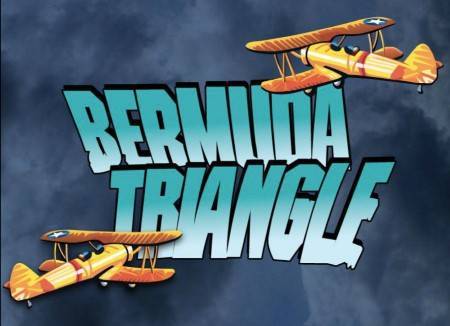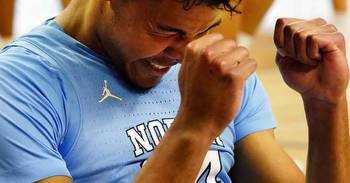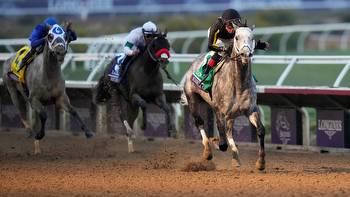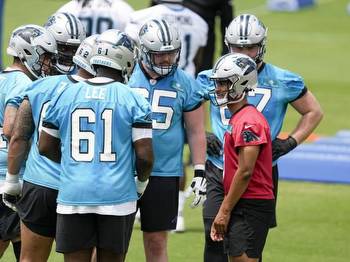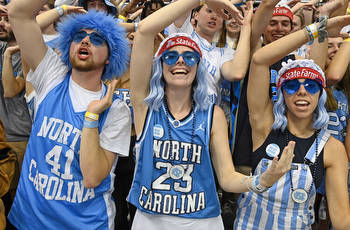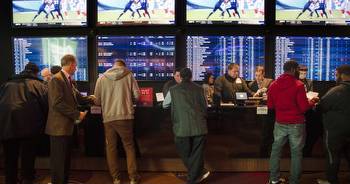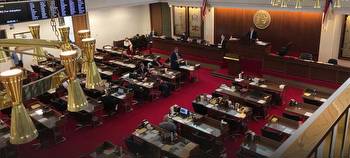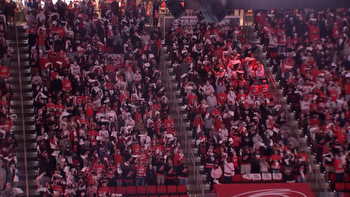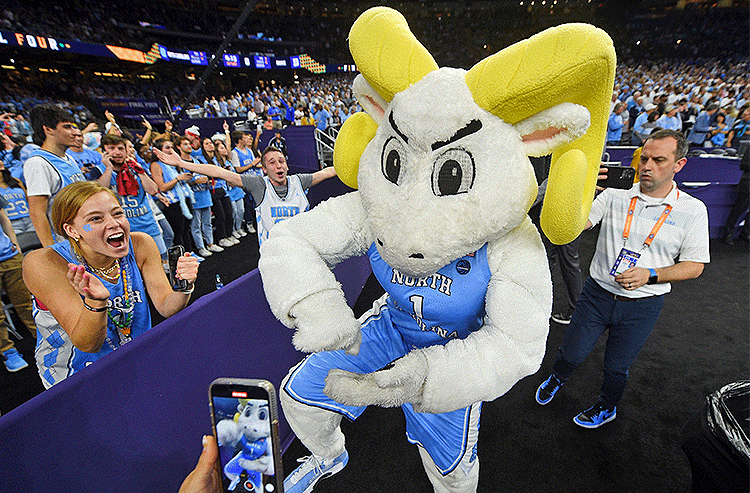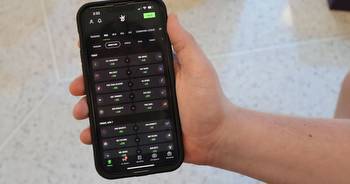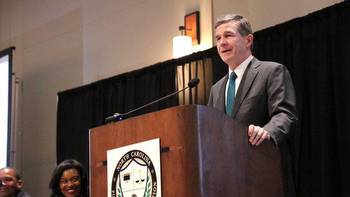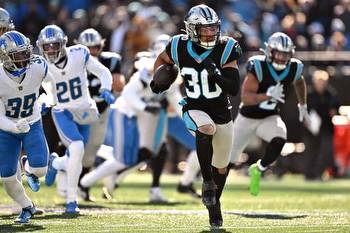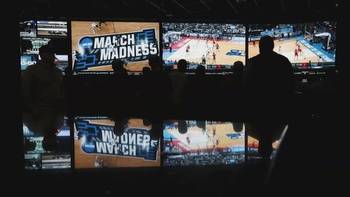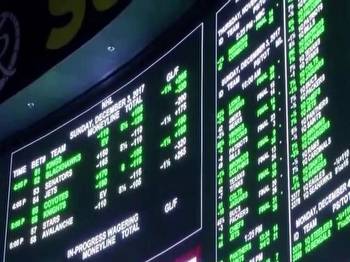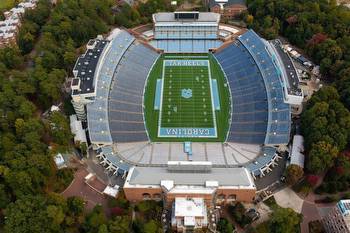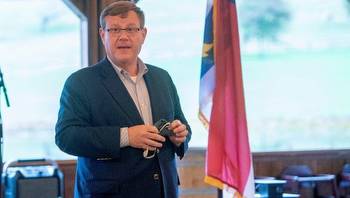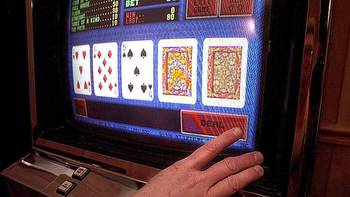Pari-mutuel betting allowed in NC Senate version of bill
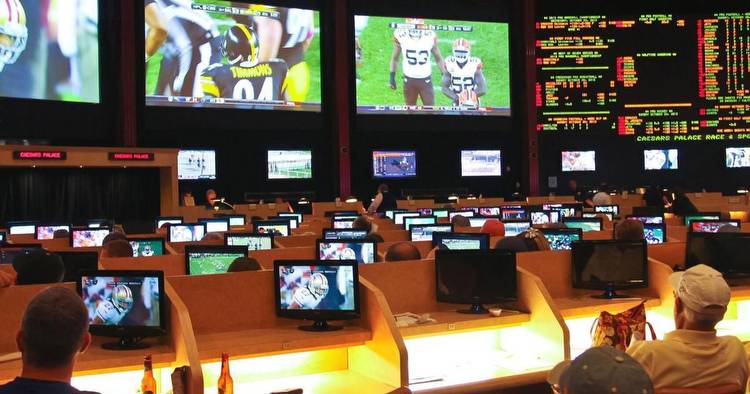
A divisive bipartisan N.C. House sports wagering bill may become even more controversial now that a Senate change would allow placing bets on horse racing.
The 27-page House Bill 347 also was amended Wednesday by the Senate Commerce and Insurance committee to authorize in-person wagering at additional public venues associated with professional sports teams and organizations.
Another change adds Appalachian State, East Carolina, UNC Charlotte and UNC School of the Arts’ collegiate athletics programs among UNC System members receiving $300,000 in annual proceeds.
However, UNCSA does not have a college athletics program, spokeswoman Catherine Johnson said. Johnson said she is checking on what UNCSA programs could be eligible for the $300,000 in funding.
Pari-mutuel wagering — most notably involving horse racing, but also dog racing and jai alai — is defined in the legislative analysis of HB347 as “a form of wagering in which the organizer pools all wagers placed together and pays the winners with the collected bets.”
The addition of pari-mutuel language was prominent enough to insert it into the title of HB347.
Under current state law, pari-mutuel wagering on horse races is illegal in N.C. except for wagers placed at casinos operated by the Eastern Band of Cherokee Indians and the Catawba Indian Nation.
Although the House version prohibits pari-mutuel wagering, Rep. Donny Lambeth, R-Forsyth, said Wednesday that bill sponsors had discussed allowing such wagering. Lambeth said he doesn’t think it could be a deal-breaker to House acceptance of Senate changes.
After gaining the Commerce and Insurance committee’s recommendation, HB347 still has to clear the Finance and gate-keeper Rules and Operations committee before gaining a Senate floor vote.
“Betting on sports in our state is occurring,” said Sen. Tim Moffitt, R-Henderson. “It’s increasing with access to smart phones and technology. It’s about us catching up.
“In order for us to regulate it and tax it and provide a public benefit from those tax, we have to authorize it first.”
Pari-mutuel wagering
Individuals under age 21 would not be permitted to place pari-mutuel wagers in the proposed law.
“In pari-mutuel wagering, the odds of a placed bet, and the potential payout, are recalculated with each bet. Therefore, the odds and payout of a placed bet are not certain until the betting window is closed for that event,” according to the legislative analysis.
“This is in contrast to traditional sports wagering, which applies fixed-odds betting locks in the odds and payout to the bettor at the time the bet is placed.”
The state Lottery Commission would be in charge of regulating pari-mutuel wagering.
“I do not believe that addition is detrimental to the bill and was discussed by the House sponsors, but we were unable to work out all the details,” Lambeth said.
“The Senate has improved the bill and should still be acceptable to the House.”
Zagros Madjd-Sadjadi, an economics professor at Winston-Salem State University, said it’s unclear whether the addition of pari-mutuel wagering “makes it more or less likely to pass.”
“On the one hand, it allows for additional gambling options that are already being utilized illegally in the state and it could provide additional revenues for the state.
“On the other hand, this type of betting structure allows for more esoteric betting structures that do not necessitate the making of fixed odds and makes it so people are really betting against each other, rather than the house.”
Madjd-Sadjadi said his concern with adding para-mutuel wagering is that it “could lead to more gambling addiction problems that throwing a couple of million dollars at the problem will likely not be able to adequately address.”
Public accommodations
According to the legislative analysis, HB347 as amended by the Senate would offer two ways to place a sports wager: in-person and as registered player online.
As with pari-mutuel wagering, the bettor must be at least age 21 and online operator would be responsible for ensuring the identity and age of any person trying to place a wager.
An online account could be funded with any of the following: cash when betting in-person; foreign currency and coin; personal checks and drafts; digital, crypto and virtual currencies; online and mobile payment systems that support online money transfers; credit cards and debit cards; prepaid access instrument; and any other form of cash or cash equivalent approved by the Lottery Commission.
According to the amendment, bettors could place their sports wagers anywhere in the state through their account.
However, interactive sports wagering operators must determine at the time the sports wager is made that the bettor is located in North Carolina, and not on tribal lands.
Bettors could also place sports wagers at a permanent or temporary place of public accommodation associated with an operator-owned sports facility, either onsite, or at approved locations within a half-mile of a motorsports facility or professional sports team, or within 1.5 miles of a sports facility associated with a professional golf tournament.
HB374 specifies that sports wagering can be allowed at the home of the Carolina Hurricanes, Carolina Panthers, Charlotte FC, Charlotte Hornets, Carolina Courage and any future Major League Baseball team.
A temporary place of public accommodation may also be established at a sports facility hosting a professional golf tournament as long as it operates only within the time period that begins five days prior to the tournament and ends five days after the tournament.
Background
HB347 passed the House by a 64-45 vote on March 29 after more than an hour of often-emotional debate of several defeated amendments.
The Senate was more receptive to a sports wagering bill during the 2022 session, including passing its version only for that bill to be narrowly defeated in the House.
As had been the case with previous votes on sports wagering bills, the no votes have been a mix of anti-gambling social conservatives and anti-poverty progressives.
Rep. Jason Saine, R-Lincoln, and House Conference chairman, is lead bill sponsor of HB347.
A legislative staff analysis has sports wagering generating $40.6 million in annual net economic impact.
During the House debate on HB347, Rep. Deb Butler, D-New Hanover, cited as an example of promotional credits, which she referred to as “hook money,” that Fan Duel provides up to a $1,000 credit to first-time users.
“This is the money that lures people to begin gambling in the first place,” Butler said. “You can bet the credit on your account, and then the hook is set and you become a regular customer. We’ll see people who hadn’t thought about gambling being hooked.”
Moffitt said the Senate changes would restrain how much a wagering platform provides in initial betting inducements by eliminate the gross-proceeds deduction on the inducements.
“Part of the promotions to get people on their platforms are already being advertised if you watch any sporting event lately,” Saine said, citing marketing and other partnerships that Draft Kings and Fan Duel have signed with professional and collegiate sports organizations.
Saine said the promotional credits would work to persuade North Carolinians to wager through legal and regulated means, rather than illegally at upward of $4 billion annually.
Other changes
Saine said that North Carolinians are placing these kinds of bets in Tennessee and Virginia, and cautioned that Georgia and South Carolina have their own sports wagering bills under consideration.
“We would go from getting no revenue from an illegal activity in this state to generating (up to $50 million) in annual revenue,” Perry said.
Raleigh TV station WRAL has reported that North Carolina’s eight professional sports team franchises or entities want eight of 12 sports wagering operator licenses available to be allocated to them.
The other four entities are NC Courage (National Women’s Soccer League), Charlotte Motor Speedway, PGA Tour and NASCAR.
The distribution split approved by the House is 60% to the state General Fund, 30% to the N.C. Major Events, Games and Attractions Fund, and the rest to various sports-oriented initiatives.
The Senate committee adjusted that split to 50% to the state General Fund, 30% to the N.C. Major Events, Games and Attractions Fund, and 20% to the 14 UNC System members’ athletic programs.
The other eligible members are Elizabeth City State, Fayetteville State, N.C. A&T, N.C. Central, UNC Asheville, UNC Greensboro, UNC Pembroke, UNC Wilmington, Western Carolina and Winston-Salem State.
The Senate version would raise from 14% to 18% a proposed tax levied on interactive sports wagering operators to provide the funding for those expenditures.
The law also would provide all 100 county parks and recreation departments with at least $10,000 annually toward youth sports programs, as well as provide grants of up to $5,000 per sports team per county for travel assistance.
HB347 clarifies that fantasy sports leagues would not be subject to the sports wagering law.
